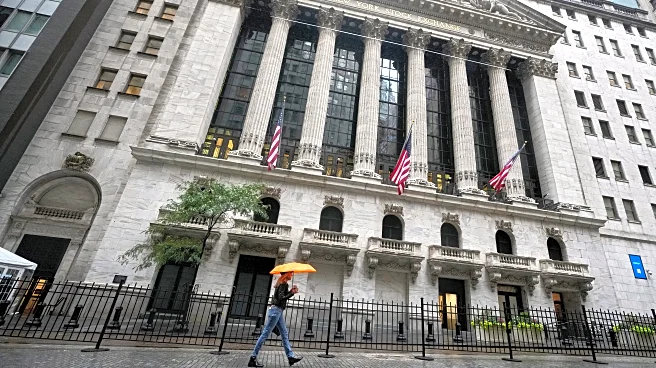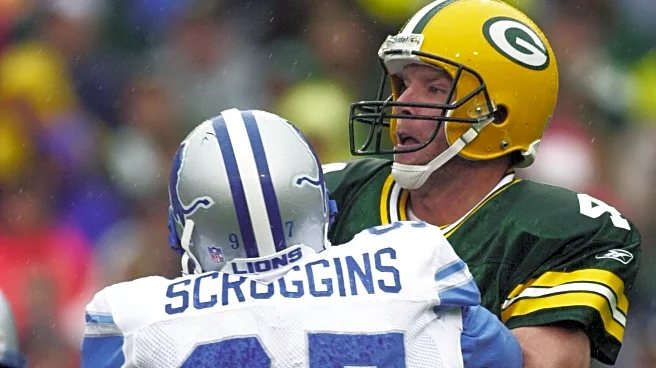U.S. markets stabilized early Friday after concerns about the health of regional banks and other financial institutions threatened to extend into a second day.
Futures for the S&P 500 fell 0.1% before the bell, while futures for the Dow Jones Industrial Average gained 0.1%. Both had been down more than 1% hours before markets opened. Nasdaq futures declined 0.2%.
Shares of regional banks fell sharply Thursday after acknowledging trouble with borrowers,
adding to the anxiety that bad loans and fraud in the private lending market may have been underappreciated.
After double-digit losses Thursday, those banks clawed back a portion of their losses Friday. Zions Bancorp. gained 3% in premarket after tumbling 13.1% a day earlier.
Zions said Thursday that its profit for the third quarter will take a hit because of a $50 million charge-off related to loans made to a pair of borrowers. Zions said it found “apparent misrepresentations and contractual defaults” by the borrowers and several people who guaranteed the loans, along with other irregularities.
Western Alliance Bancorp gained 1.3% in premarket, one day after it dropped 10.8% on news that it has sued a borrower, alleging fraud. The bank stood by its financial forecasts given for 2025.
Scrutiny is rising on the quality of loans that banks and other lenders have broadly made following last month’s Chapter 11 bankruptcy protection filing of First Brands Group, a supplier of aftermarket auto parts.
One of the lenders exposed to First Brands, Jefferies Financial Group, clawed back part of its double-digit loss a day earlier, rising 2.9% before the bell.
The question is whether the lenders' problems are just a collection of one-offs or a signal of something larger threatening the industry.
“The Street’s been dining on rate cut and AI optimism for months, but this week the waiter brought something no one ordered: the return of the credit bogeyman,” Stephen Innes of SPI Asset Management said in a commentary.
“Regional banks have become the canaries in the credit coal mine, and their chirping sounds suspiciously weak,” he said.
JPMorgan CEO Jamie Dimon addressed the issue on an earnings conference call with analysts earlier this week.
“When you see one cockroach, there are probably more,” Dimon said. “Everyone should be forewarned on this one.”
Bitcoin continued its slide, falling another 2.3% to $105,715. The original cryptocurrency has declined more than 15% in the past 10 days as holders retreat for safer investments.
Oil prices were lower while the price of gold climbed to over $4,383 an ounce, and was last trading at $4,356.50 per ounce, as Washington and Beijing swapped harsh words over trade.
In European trading, a sell-off of bank and financial shares weighed on regional indexes. Germany's DAX slumped 1.6% and Britain's FTSE 100 fell 1%. In Paris, the CAC 40 shed 0.2%.
In Asia, Japan's Nikkei 225 fell 1.4% to 47,582.15, tracking U.S. losses. Uncertainty over the choice of a new prime minister has also weighed on investor sentiment.
In Chinese markets, shares fell as trade tensions with Washington intensified. Hong Kong's Hang Seng index slumped 2.5% to 25,247.10, while the Shanghai Composite index slid nearly 2% to 3,839.76.
Traders also remained cautious ahead of Monday's release of economic data and an important meeting of the ruling Communist Party leadership next week.
South Korea’s Kospi closed nearly flat at 3,748.89, erasing earlier gains amid optimism over progress in trade talks with the U.S.
Data released on Friday showed South Korea’s seasonally adjusted unemployment rate slid to 2.5% in September from 2.6% in August.
Australia's S&P/ASX 200 lost 0.8% to 8,995.30, retreating from the previous day's record high. Energy and tech stocks led the decline.
Taiwan's Taiex dropped nearly 1.3% while in India, the Sensex rose 0.4%.
















